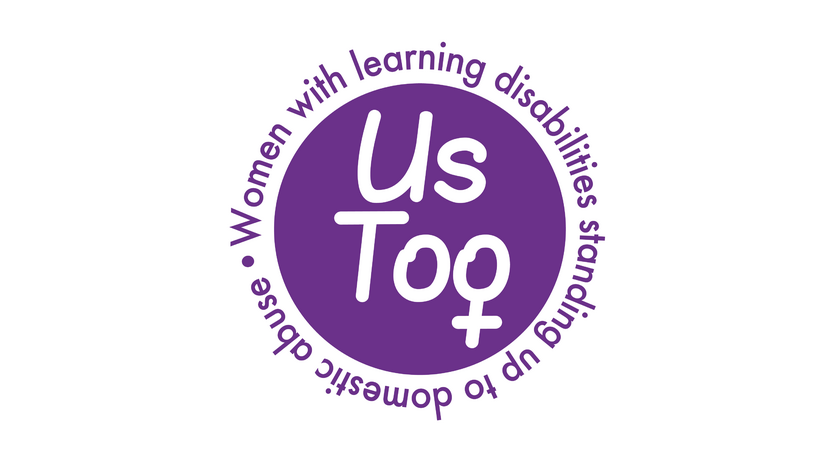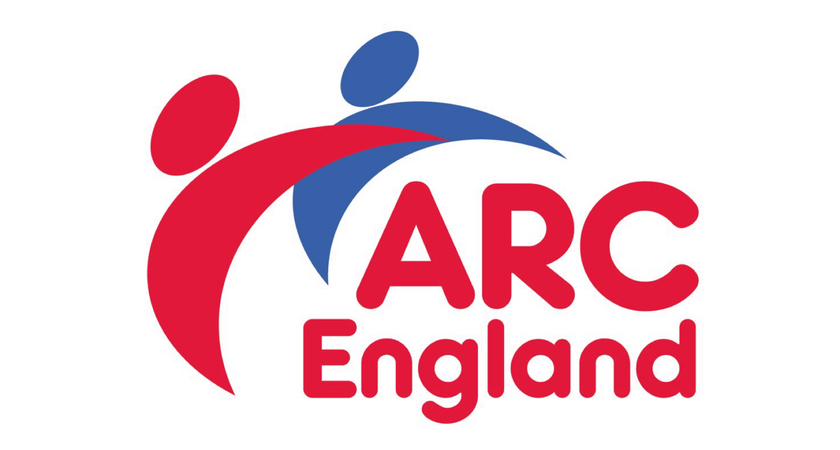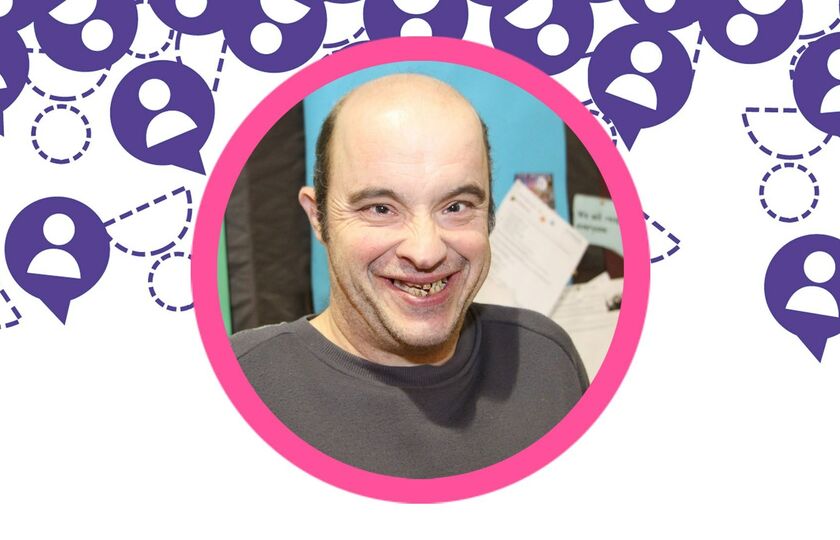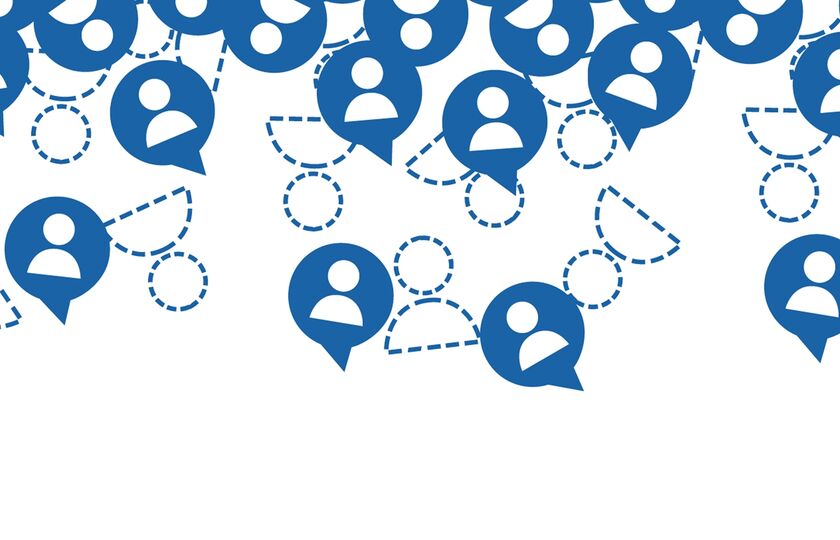These two short videos were made by the Us Too group. The first video is about good relationships. The second video is about bad relationships. Watch them here
Supported Loving toolkit
Domestic abuse
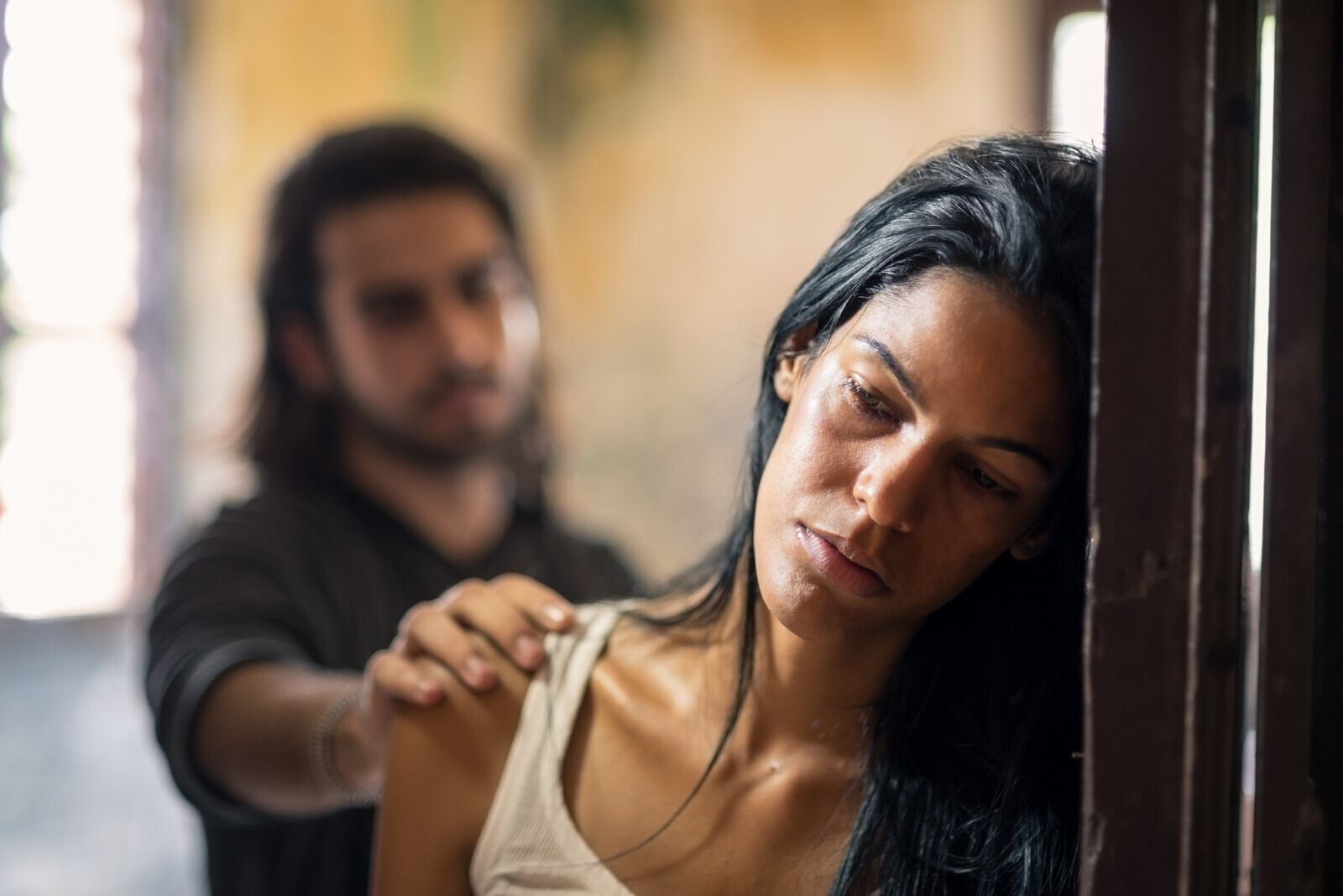
People with learning disabilities are three times more likely to experience domestic abuse, and in the last year alone it has happened to nearly one in every five people. [Office for National Statistics, 2021].
What is domestic abuse?
The UK Government definition is: Any incident or pattern of incidents of controlling, coercive or threatening behaviour, violence or abuse between those aged 16 or over who are or have been intimate partners or family members regardless of gender or sexuality. This can encompass, but is not limited to, the following types of abuse:
- psychological
- physical
- sexual
- financial
- emotional.
Controlling behaviour is defined as: a range of acts designed to make a person subordinate and/or dependent by isolating them from sources of support, exploiting their resources and capacities for personal gain, depriving them of the means needed for independence, resistance and escape, and regulating their everyday behaviour.
Coercive behaviour is defined as: an act or a pattern of acts of assault, threats, humiliation and intimidation, or other abuse that is used to harm, punish or frighten their victim.
Disabled people experience disproportionately higher rates of domestic abuse compared to the general population. Around one in seven (14.3%) disabled people have experienced domestic abuse in the last 12 months, compared with about one in 20 (5.1%) non-disabled people. Disabled women (17.5%) were more than twice as likely to experience domestic abuse in the last year than non-disabled women (6.7%) and people with learning disabilities experience the highest rate of domestic abuse (19.1%) (Office for National Statistics, 2021).
Disabled people experience domestic abuse for longer periods of time, and more severe and frequent abuse. This may include more severe coercion and control, or abuse from carers (Public Health England, 2015).
The “Us Too” Team is a group of women with learning disabilities and autistic women who have experienced domestic abuse and/or sexual violence. They draw on their experiences to develop and deliver training to their peers and professionals, including domestic abuse services. A survey by the Us Too project carried out amongst girls and women with learning disabilities, autism or both found that:
- 17% think it is ok if their partner assaults them, but then says sorry and buys them chocolates.
- 18% think it is ok if their partner tells them what to do the whole time.
- 31% have never heard of domestic abuse.
- 100% did not know how to contact their local domestic abuse services.
What are the most common challenges faced by people in this area?
The Us Too team share their own life experiences and why they think having a learning disability, being autistic or both makes it more likely that domestic abuse could happen to you. They said:
“’We have had poor sex education.’ We had little or no sex and relationship education during formal education. One result is limited knowledge of relationship ‘rules’ and what is okay. Another is that we don’t have the words to explain what has happened to us.”
“’We are overprotected.’ We are often treated as children well into adulthood and were sheltered from opportunities to learn from experience and from ‘difficult’ subjects like sex and abuse. This can mean that we find it hard to form positive relationships and are more willing to tolerate bad ones.”
“We may not know how to report, and if we do, we are not listened to.”
“Our disclosures (verbal and non-verbal) can be thought of as part of our disability." This was particularly true for women with more significant disabilities, whose disclosures may come in the form of what is interpreted as ‘challenging behaviour’ rather than communication about abuse and trauma.
“’We can be reliant on the perpetrators.’ Many of us were financially and practically dependent on our abusive partner.”
“’Our supporters have not been trained in domestic abuse.’ This can stop them recognising the signs that we are potentially being abused or what action to take.”
“‘We don’t get the help we need.’ None of the abuse we experienced resulted in criminal charges and domestic abuse services don’t meet our needs.”
“‘Abuse is ‘normal’ to us.’ Everyday abuse can be so common for us that we don’t bother mentioning it.”
“Many of us have learned compliance. Many of us have learned to do what is expected of us, and we become eager to please.”
How best to support people to reduce the likelihood of domestic abuse occurring
Education
We need the best sex and relationships education at school and throughout our lives. This needs to include rules for relationships, the difference between good and bad relationships, and how to get out of a bad relationship.
Socialisation
We need to live our lives, take risks, learn from our mistakes. We want to meet people and need support to develop positive relationships.
Support
We need:
- our support staff trained to spot the signs of domestic abuse; how to stop it, and make it less likely
- the police trained on understanding learning disabilities and autism; to know that domestic abuse happens to us, and to ask us what we want
- domestic abuse services to be accessible and trained in meeting our communication needs; to tell us how to contact them, what we can expect, and give us the support we want.
Empowerment
We need to be in control of our own lives, listened to, and for our choices to be respected.
Reporting
We need to know how to report abuse, and so do our supporters. Reporting needs to be quick and easy. We need to be believed.
Watch Us Too's webinar about their project surrounding domestic abuse run by women with learning disabilities and autistic women. The Us Too team have been teaching other women with similar support needs about how to stay safe in their relationships.
Watch Dr Amy Pearson's webinar exploring a project focused on understanding the support and recovery needs of autistic adults who have endured intimate violence and abuse. Sharing insights from this research and discuss practical strategies for organisations to better support survivors and prevent future incidents of intimate violence and abuse. Additionally, we'll introduce a co-produced resource designed to empower survivors.
Do...
- provide sex and relationships education throughout peoples’ lives, including information about domestic abuse, sexual violence, and how to report it
- be aware that there are power dynamics within all relationships that need to be negotiated. If one partner is disempowered, they may need support to address this. The team’s experience showed that traditional gender roles can potentially disempower some women in heterosexual relationships
- believe people when they tell you they are being, or have been, abused. Domestic abuse happens widely, is often normalised in the lives of people with learning disabilities, autism or both. Act on your suspicions.
Don't...
- perpetuate learned compliance – instead support people to take control of their own lives. Enable positive risk-taking, so that people gain experience in evaluating risk and learning from it. Work with people on their confidence and self-esteem
- let other agencies fail in their duty to provide a service for, and support, people with learning disabilities, autism or both.
Case study: Misha
This case study is based on the combined experiences of the women in the Us Too team.
“I just wanted to be loved. I met Jack and he was lovely. Everyone loved him. He treated me like a grown up, buying me drinks and taking me out to the casino.”
“When he lost, he borrowed money from me, but I never seemed to get it back. I didn’t mind, it’s what you do if you love someone.”
“Jack started telling me what to do the whole time, and he always needed to know where I was and who I was with. He said he was just looking after me.”
“Jack was always fun to be with, and I wanted to please him, but now he says I don’t need my friends, I have him and that’s all I need.”
“Jack has a temper and has started smashing things when we row. He tells me it is all my fault that I make him angry...”
“Jack hasn’t hurt me yet, but some of my friends are scared of him, and they tell me I should get out. I think I might, but I don’t know how, and I am frightened.”
Social care professionals attending Us Too workshops, when discussing this case study, said that if they were supporting Misha, they would:
- Sensitively support her to recognise the abuse. Make time for her, and go at her pace.
- Talk to her and do what she wants.
- Support her to report, if that is what she wants.
- Refer her to a domestic abuse service, a Multi-Agency Risk Assessment Conference (MARAC) or a safeguarding meeting.
- Work jointly with Misha to assess her risks. Find a risk assessment tool.
- Assess her capacity for choosing the relationship and reporting.
- Provide education and guidance on healthy relationships.
- Refer Misha for advocacy.
- Look at what other support Misha has (eg family).
- Find her a place of safety. Can she access a refuge?
- Complete a safety plan with her.*
- Give Misha helpline numbers.
- Find counselling for Misha.
- Think about Jack too, does he need help? Is he a danger to others? Does he have a learning disability? Has he been abused?
Top tips
The Us Too team’s key messages for professionals are:
- Know the warning signs.
- Know where you can get help.
- Make sure you, and the people you support, are heard.
- Be aware that it might make people feel guilty, ashamed, or dirty, but it is not their fault, and they are not alone.
Report it
- If you think that domestic abuse is taking place, tell your line manager immediately. Report it to your local safeguarding team.
- Seek support from your local domestic abuse services or national helplines. You can call Refuge 24-hours a day on 0800 2000 247 and for more information visit https://www.nationaldahelpline.org.uk/
- If someone is in danger, report it to the Police via 999.
- The person experiencing domestic abuse will need lots of help tailored to their needs to report it. Listen to what they want and do not make any assumptions.
Members of the Us Too Project, supported by Rod Landman at ARC England
More information on all the above, including an accessible safety/escape plan (*), extensive resource list, model policy for social care providers and a guide for those supporting people with learning disabilities, autism or both can be found on the Us Too pages of the ARC England website here: https://arcengland.org.uk/the-us-too-project/
The views expressed in the Supported Loving toolkit are not necessarily those of Choice Support.
Resources
From Us Too to You- Videos on healthy relationships
SARSAS Easy Read Self Help Guide for people who have experienced sexual abuse
Somerset and Avon Rape and Sexual Abuse Support (SARSAS) (Bristol) guide available here
SARSAS Easy Read Guide to Sexual Consent
SARSAS easy read consent guide can be found here
Helping autistic people recognise unhealthy relationships
The guide, written by a team including academics and autistic advocates at Durham University, is designed to help autistic people recognise the signs of abusive or unhealthy relationships- also available in easy read
DASVP Easy Read Self Help Guide for people who have experienced sexual abuse
Available here
Cambridgeshire DASVP are happy to send Word versions out if you want to add your own details as long as you credit Cambridgeshire DASVP. Please contact: Amanda.Warburton@cambridgeshire.gov.uk
Film for women with learning disabilities on domestic abuse Tizard Centre
Watch the film here



